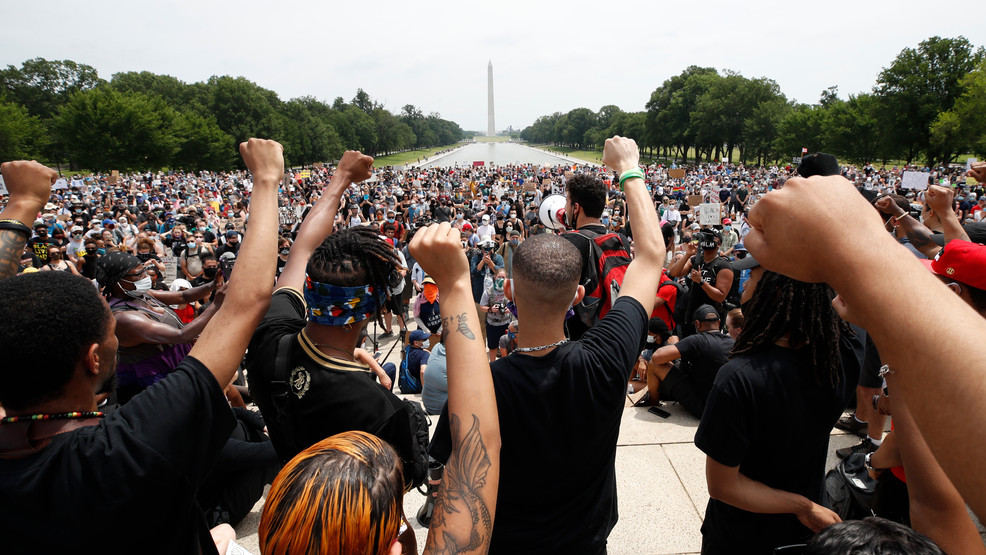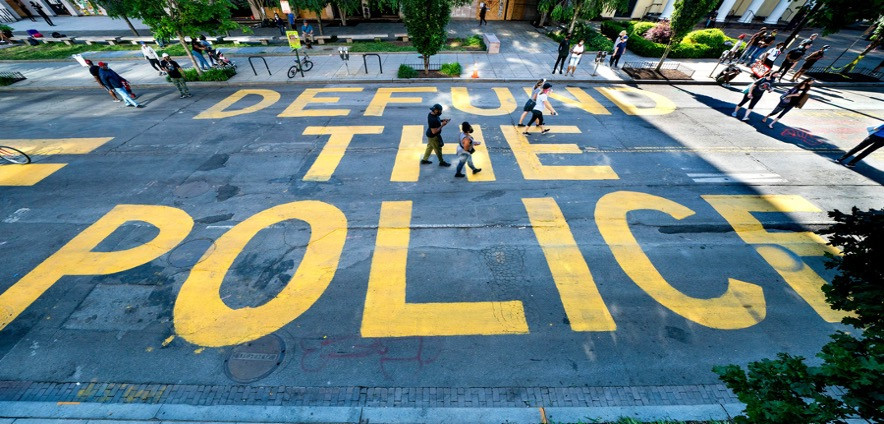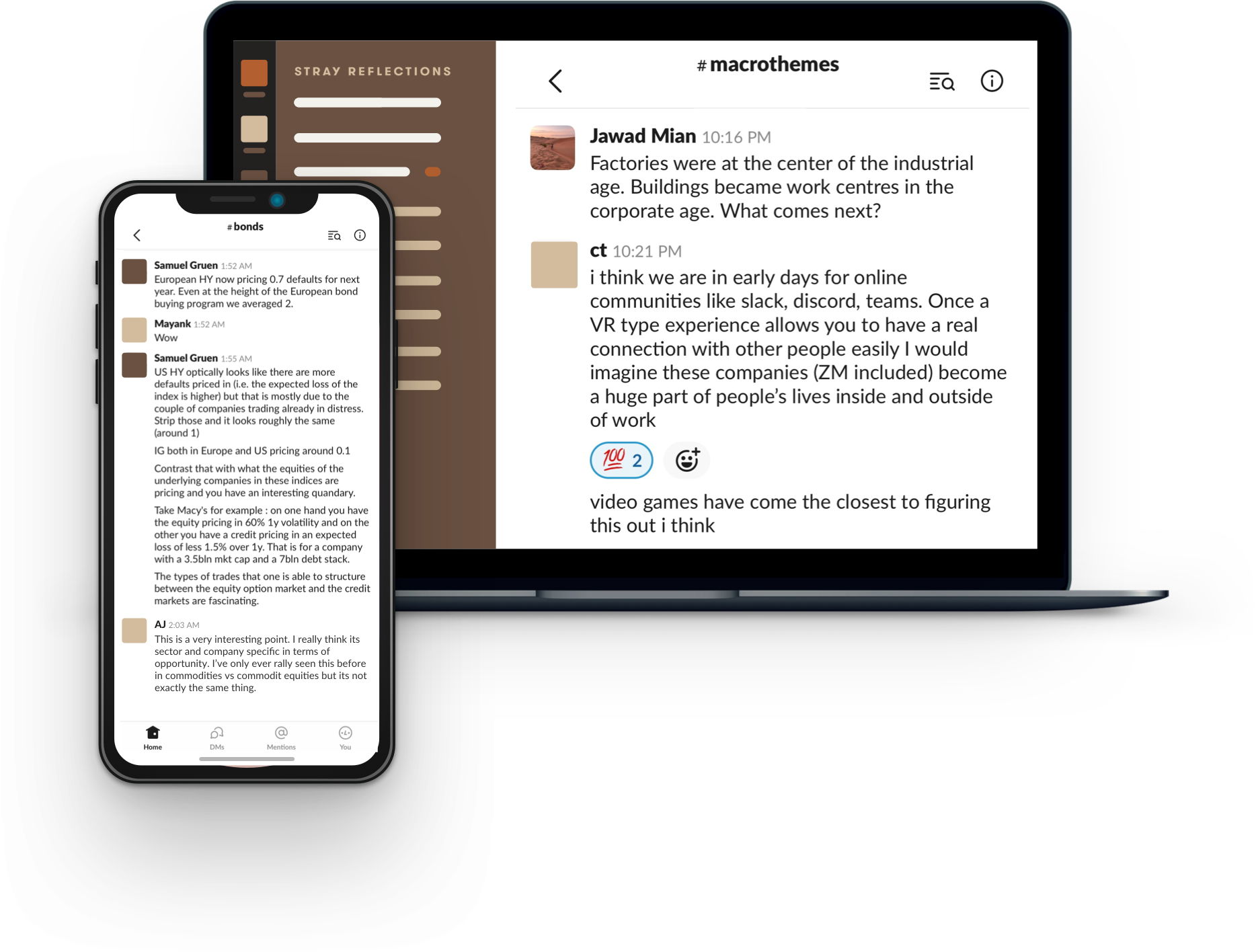It feels different this time. The killing of George Floyd has confirmed the relevance of W.E.B. du Bois’s grim prophecy, in 1903, about America’s everlasting racism. The whole world is mourning.
There have been anti-racism demonstrations in three hundred and eighty cities in America and many countries around the world, even in the midst of the coronavirus pandemic. “We cannot tolerate or turn a blind eye to racism,” Pope Francis said, as he condemned the “sin of racism.”
Apple CEO Tim Cook wrote the “painful past is still present today” in an internal memo to employees that discussed discrimination. Jeff Bezos posted an irritant email on Instagram and said that he was “happy to lose” a customer who objected to Amazon’s support for the Black Lives Matter Movement.
JPMorgan CEO Jamie Dimon and Canadian prime minister Justin Trudeau took a knee in solidarity with demonstrators. House Democrats did the same, for nearly nine minutes, while dressed in African kente cloth scarves. “Black Lives Matter” is painted in bright yellow letters on the road to the White House.
Even the NFL has admitted “we were wrong for not listening” to players who peacefully protested police brutality. Fashion brands are speaking up. Sephora committed 15 percent of its shelf space to black-owned beauty brands. Walmart pledged to stop locking up “multicultural” hair and beauty products in display cases. And toymaker LEGO suspended marketing for police-themed sets.
K-Pop Group has donated $1 million to Black Lives Matter and fans have vowed to match it. Michael Jordan, who once famously said, “Republicans wear sneakers too!” has pledged $100 million to fight racial inequality. “I am deeply saddened, truly pained and plain angry,” he stated. “We have had enough.” Snoop Dogg said he plans to vote for the first time ever.
Hollywood celebrities are coming together too. Some are helping protestors make bail. Others have started the #ITakeResponsibility campaign to take action and “learn more about issues facing the Black community.” Madonna has contributed a video of her son dancing to Michael Jackson’s song “They Don’t Really Care About Us” to “honor” Floyd and his family. David Guetta remixed a version of Martin Luther King Jr.’s “I Have a Dream” speech.
Hacktivist group, Anonymous, is back in action and took responsibility for taking the Minneapolis police website offline. Banksy emerged with a new artwork and message: “People of color are being failed by the system. The white system. It’s not their problem. It’s mine.”
For the first time a majority of Americans, 57 percent, say that police officers are more likely to use excessive force if the culprit is black. There is optimism in that change is happening so quickly in the context of years of slow progress.

Source: Associated Press
The New Yorker interviewed Opal Tometi, one of the co-founders of the Black Lives Matter movement.
How are these protests different from what came before?
People who would normally have been at work now have time to go to a protest or a rally and have time to think about why they have been struggling so much. (Ed note: Her whole answer was utterly disappointing and not worth reproducing here).
It’s interesting that your answer focused so little on criminal justice specifically.
I absolutely think people are concerned with police brutality. Let me make that absolutely clear. We have been fighting and advocating to stop a war on black lives. And that is how we see it—this is a war on black life.
Is it important that a specific agenda is heard from protesters, or is that the job of other people?
A specific agenda like?
People showing up at protests with signs listing specific reforms.
What we are witnessing now is the opening up of imaginations, where people are beginning to think more expansively about what the solutions could be. We have our solutions. We want the rights of protesters to be respected. We want a divestment from the police and an investment in black communities. We are demanding immediate relief for our communities. We want community control. We want an end to this war against black people.
Oh dear! Tometi’s hollow response is consistent with other interviews we read and watched of people speaking for the Black Lives Matter movement. This extends to Sen. Kamala Harris, Sen. Cory Booker, and Stacey Abrams.
There has been not one mention of the gutted Voting Rights Act, the history of hyper-criminalization of Blackness to sustain racial hierarchy, or the ongoing purge of Black voters at the state level. The rallying cry is to defund the police, which polls show that two-thirds of citizens oppose.
America’s policing budget is $115 billion. Even if that is cut by 20 percent—which is politically inconceivable—and the savings, some $23 billion, are distributed among Black communities, it would do nothing to fix the social and economic inequities. That amounts to only $550 for every Black man, woman, and child.
Yet, Tometi and her co-founders have described police defunding as “our next stage of work.” Demonstrators painted the words “Defund the Police” near the White House over the weekend.

Source: The New York Times
“A riot is the language of the unheard,” Martin Luther King Jr. said, in 1966. The problem with the Black Lives Matter movement is that it is also uninformed. Voting rights remains one of the most important yet least discussed issues in 2020.
W.E.B. du Bois, the greatest of the early civil rights leaders, had an unswerving commitment to the Black right to vote as the means to secure equal treatment in education, housing, and employment. But this brought him into conflict with Booker T. Washington, the most powerful Black leader of the time.
In an 1895 speech, Washington advocated trading the ballot against better economic opportunities. His ideas were accepted by whites who were more than happy to defer any real discussion of social and political equality to a later date.
Du Bois firmly rejected what he saw as submission and silence to civil and political rights. He called Washington’s speech the “Atlanta Compromise.” This quarrel split the Black movement down the middle.
In 1896, America saw the legalization of segregation through the Supreme Court decision of Plessy v. Ferguson. The “mutual progress” Washington promised didn’t arrive.
As Blacks were thrown off the voting rolls and purged from the Republican Party, du Bois called for a “talented tenth” of educated African Americans to give direction to the civil rights struggle.
Coming back to the present moment, we believe the “Defund the Police” dogma risks splitting and discrediting the Black Lives Matter movement. History has shown that you can’t break the white power structure simply through hard bargaining.
America’s white political elite will be more than happy to pass “sweeping changes” that “encourage” police reform, but avoid any real discussion on the political disempowerment of Black people.
Because it’s an election year, and public opinion has swung in favor of police reforms, we expect President Trump will sign a bipartisan police reform bill aimed at better police training, professional standards for the use of force, more data and transparency to track bad officers, a ban on chokeholds and the use of no-knock warrants, and that finally makes lynching a federal hate crime.
None of this will alter the deep racist structure of the criminal justice system. The police reform and new laws, named after Black victims—the Eric Garner Anti-Chokehold Act and Breonna’s Law—are acts of social inertia that will keep the society more like it was in the past than like the “dramatically changed” society that many will celebrate.
Black Lives Matter is arguably a powerful cultural movement of our time that exposes discrimination more than it is a civil rights movement. The lasting impact will not be directly political or revolutionary.

Photo: Daniel Clark






